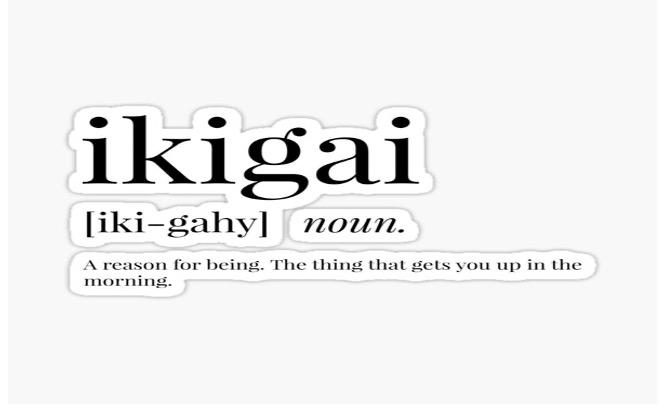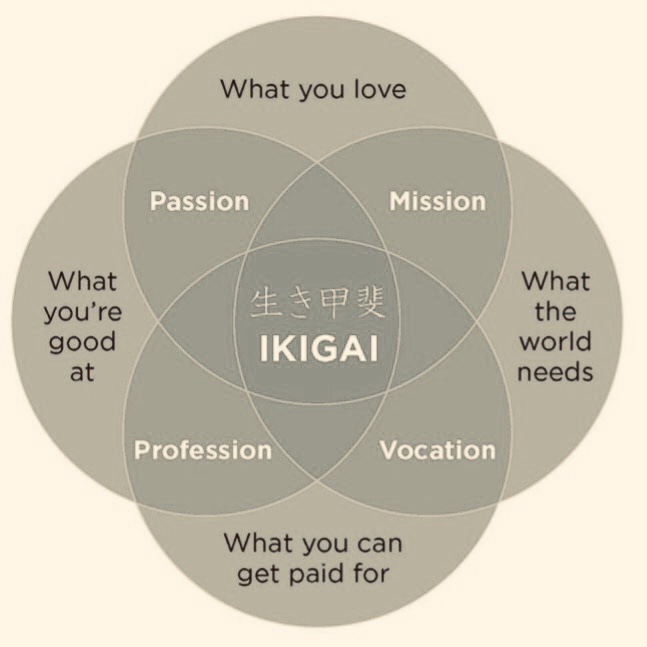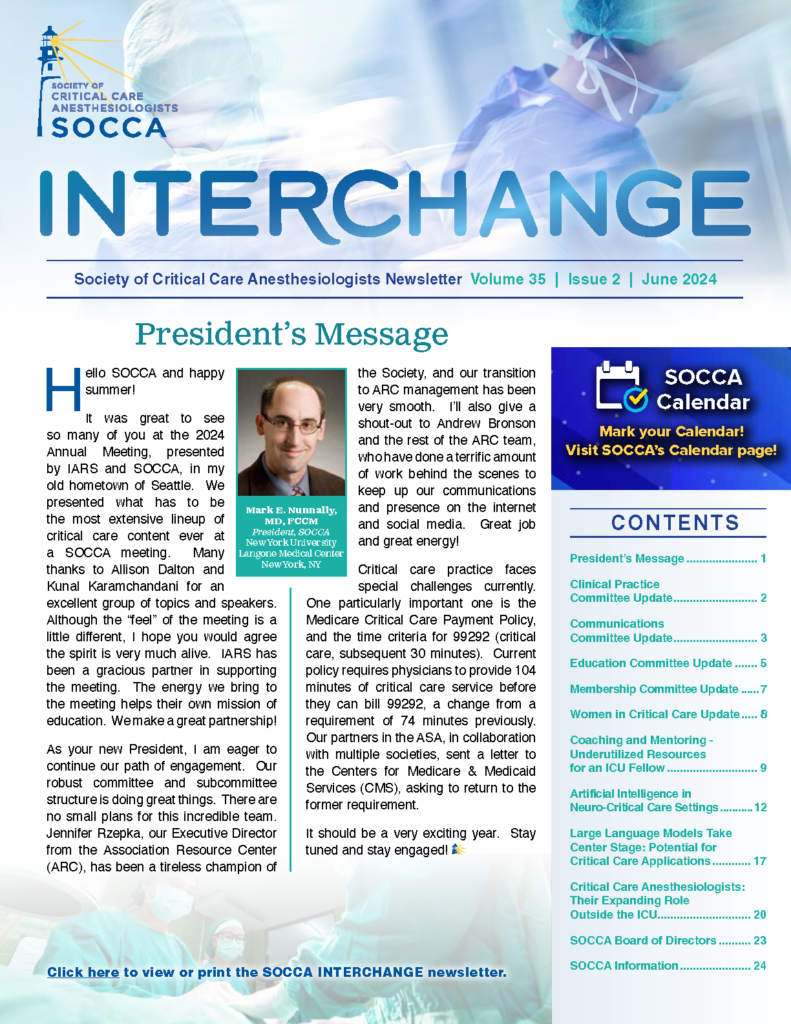Finding Purpose in Our Work

To at least some degree, we all entered medicine for altruistic reasons: helping others, finding meaning in providing comfort and care, and saving lives. We in critical care are especially driven to offer management of life-threatening disease states as well as solace and comfort to critically ill patients. This aspect has been highlighted in striking detail during the pandemic where, despite the grueling physical demands of working in ICUs during this time, the discomfort of PPE, and the trauma of watching so many people die and so many families suffer, we still find joy and reward in the lives we save and the families whose lives we touch by our compassion.
Finding meaning in our work is more than ever important to get through the pandemic of COVID and the new awakening to bias. In contrast, how often do we hear from others—or say to ourselves—when stretched beyond the limits of resilience that “I hate this job,” or “I hate this place?” Every day, nurses and doctors leave the profession feeling burnt out and disillusioned. Healthcare workers have felt a disproportionate share of weighty burdens: fear of contracting a deadly disease and transmitting it to our vulnerable loved ones, potentially dying from it, and compassion fatigue as daily challenges continue on.
After residency, I went from a fellowship in NYC during 9/11, witnessed several bombings in Pakistan, felt the national fear and horror of the aftermath of SARS in Singapore, and then returned to the US—just before the pandemic! During all of this I worked full time as an academic anesthesiologist and intensivist. Horror, devastation, fear, and despair are some of the words and emotions I have encountered closely. But apart from the love and support of my family, it is ‘Ikigai’ (a Japanese word for the reason for being) that keeps me coming back to work without (at least overt) bitterness! Of course, I did not know what this meant until I researched the topic and found that the values that define the concept are true to the core of countless other professionals who, despite being pulled in all directions and weighed down from the disparate burdens of working during the pandemic in high stress situations, still find meaning and purpose in what they do.

This concept, or philosophy, has a wider and deeper meaning than just resilience or grit. For one, it is multidimensional. Purpose is not something you just find in life, or something that remains stable over time. It has to be built and understood as we evolve as people and professionals. It also evolves with circumstances. For example, during the pandemic, many ICU staff found a higher purpose in taking care of the critically ill at the expense of their own susceptibility. Purpose needs to be built from the pillars of Ikigai, which weave a mesh around our passion and our mission with our profession or vocation. These pillars are built on the foundations of 4 practical principles: what you love, what you are good at, what the world needs, and what you can get paid for. When these come together, we find Ikigai.
There are several purposes in life, which can complement each other or lead to the fulfilment of the others, such as family, community, helping others, faith, etc. The important thing is that the superficial drudgery, at times injustices, and stressors of our daily work life should not lead to removing the very purpose and meaning of why we joined the profession in the first place. The pandemic has shown us with resounding emphasis that life is an uncertain force, and we cannot plan our trajectories around probable courses. Our own Ikigai is the asset that needs to be built upon. We must first recognize what we love to do and are good at—yes, the two can often be different!—and molding this into our chosen profession. This must fit into what we can get paid for, and from there we can begin to build a sense of meaning in our daily existence. Truly achieving a sense of meaning and purpose comes from connecting these efforts to the needs of the world, which is where the nobility of our aspirations factors into the equation. Unpacking what we mean by purpose can help us better understand its presence, as well as the importance of not always trying to find our purpose but rather putting in a purpose in everything we do.
Burnout and disillusionment are on the rise, even in professions with a high impact on the world. Tiredness, Zoom fatigue, meetings, emails, fear of an unending pandemic, uncertainty, and childcare burdens have taken their toll on all of us. Burnout is a simplistic word that is often used incorrectly and not in its proper scientific manner. We may not display all three aspects as Maslach intended, but different varieties and combinations lead to disillusionment. Many have considered and actively chosen to leave the profession after years of training and thousands of hours and dollars invested. But how can we make it so that our job itself was worthwhile? What if it was meaningful, satisfying, and through it we could be part of something bigger? Would it take financial incentives? More vacation days, better work-life balance, better wellness resources? A motivational talk from leadership? In my opinion, it has to come from within, and even though organizations play a pivotal role in motivating or destroying morale by unjust practice or out-of-touch management, there is a certain modicum of personal or individual control that can be leveraged in any situation. If we do not have this control on our own paths, there is a sense of grief and loss of our purpose, which is associated with burnout’s deep and visceral depression.
For me, that control came from another concept I read about whilst researching this article: “job crafting.” I noticed that along the years, the circumstances of my employment in three different countries were very different; however, the relationships, attitudes, and behaviors, as well as rewards and costs (a euphemism here for punishments), were similar. Job crafting helped stabilize these varied yet similar forces through natural and manmade disasters that life threw our way. Job crafting has been described as “an employee-initiated approach which enables employees to shape their own work environment such that it fits their individual needs by adjusting the prevailing job demands and resources.”
In many ways, job crafting is what many of us do to pull ourselves out of whatever ‘slump’ we may be going through, whether it is physical fatigue, emotional burdens, failures, or toxic cultures. We improve our engagement by elevating what we are doing in three ways.
- The first is task crafting, where we improve our own work environment by either making choices that are available to us at work but benefit us in the short term, such as taking a vacation day, or going part time for a short period. I had to do that when my second-born son had colic, which was intractable for 9 months and effectively prohibited me from working normal hours while my older son was just a toddler. This helped me stay engaged while managing childcare responsibilities. While this may not be always an option, similar types of task crafting can be used to overcome temporary shifts in demands inside and outside of work.
- The second, which I find the most useful, requires a great deal of emotional awareness and intelligence: relationship crafting. This is where employees and professionals can change the way they interact and communicate across the board. I find this to be the most rewarding. Always trying to find a personal touch and instilling a positive emotion in a job relationship is a key tool tool for building trust and respect while also contributing towards a more satisfying life at work. Whether we like it or not, we often have to spend 10-12 hours a day at work, if not more. If our relationships are cold and aloof, team dynamics will be suboptimal, which can foster disengagement and dissatisfaction.
- Lastly, and most in our control, is mindset crafting. This is where we can elevate our work to find more meaning by changing our own perspective of how we see our work. For example, an environmental service professional can add a greater impact in what they do by remembering that they are crucial in maintaining the safety and efficiency of the ICU beds that they clean. Similarly, if we view what we do as having a higher purpose for humanity, we may find much more of a return on investment of the sacrifices we make daily.
Although Critical Care has proudly shone during the pandemic as a field that rose to meet the associated demands and rigors, we as professionals can still redefine, reimagine, and get more meaning out of what we spend so much time doing by using Ikigai and job crafting to our benefit.
Bibliography
- Joly, H. A time to lead with purpose and humanity. Harvard Business Review. Mar 24, 2020. Available from: https://hbr.org/2020/03/a-time-to-lead-with-purpose-and-humanity.
- Rogala A, Cieslak R. Positive Emotions at Work and Job Crafting: Results From Two Prospective Studies. Front Psychol. 2019;10:2786.
- Tims M, Bakker AB, Derks D. The impact of job crafting on job demands, job resources, and well-being. J Occup Health Psychol. 2013;18(2):230-40.
- Yamamoto-Mitani N, Wallhagen MI. Pursuit of psychological well-being (ikigai) and the evolution of self-understanding in the context of caregiving in Japan. Cult Med Psychiatry. 2002;26(4):399-417.




































